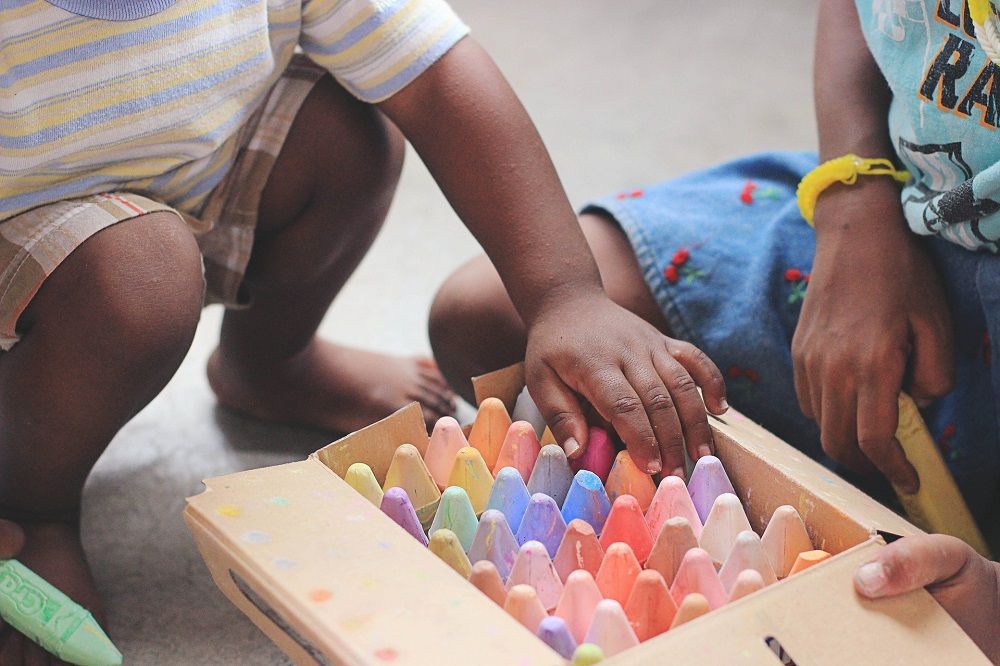Hurricane recovery : Children to benefit from OECS-UNICEF “Return to Happiness Programme”
OECS Media release
214 children from Barbuda received psycho social assistance, after the trauma of hurricane Irma, through the Return to Happiness Programme implemented from October 2-7 by 17 education specialists. The Saint-lucian delegation of volunteers, who successfully completed the first mission, will extend their operations to other affected countries.
The passage of two category 5 hurricanes resulted in major material damage in several countries of the region and also left significant psychological marks on the victims, which is more difficult to evaluate. Natural disasters of this magnitude often leave survivors suffering from trauma and, especially when children are affected, their emotional suffering needs to be given special attention.
As a result, the OECS Commission and UNICEF partnered to implement a psycho social programme dedicated to children between 5 to 12 years old: Return to Happiness Programme (RTH). The RTH methodology has been used worldwide in countries impacted by a human or natural catastrophe such as major armed conflicts or high magnitude earthquakes. Its goal is to support the recovery of young children by giving them opportunities to share their feelings.
A team of 17 education professionals trained in the Return to Happiness methodology have been sent from St. Lucia to Antigua and Barbuda on a mission from October 2 to 5. These educators received logistical support from the OECS Commission to ensure air transportation and the necessary accommodations on the ground.
Indeed, the smaller island of Barbuda has been totally devastated after the passage of hurricane Irma which has resulted into the evacuation of 1,600 inhabitants to its larger sister island of Antigua. A total number of 214 children from 5 to 13 years old from Barbuda benefited from psycho social assistance through the Return to Happiness Programme. Another group of 25 young professionals also attended a train the trainers workshop. The workshop aims at ensuring the continuation of the work of the RTH methodology with the children after the redeployment of the Saint-Lucian delegation to other affected countries. The workshop also enhanced the capacity of locals to respond in the event of future traumas or disasters.
On her way back to Saint-Lucia, where the team is currently participating in a debriefing session, Urania Joseph, a social transformation officer who led the delegation confirmed the success of the mission:
"The sessions took the children through a process of guided play activities, drawing and painting of their feelings before and during the hurricane, and their dreams and their hopes. The first day, they looked very sad and they felt much better after the session. We finally asked them to draw what they would like to do in the future and some of them drew a police officer, a nurse and a doctor. They also said that they would like to go back to Barbuda. The sessions went really well and ended on hope and a positive note. We also trained other local specialists and we hope that they will be able to continue the work with the children," the team leader said.
The group of education specialists left Saint-Lucia on Sunday October 15 to pursue the implementation of the Return to Happiness Programme in other affected countries. One team will be deployed to Anguilla and the other to the Turks and Caicos.
 Preparation meeting organized at the OECS Commission in St. Lucia with the education specialists before the mission of the Return to Happiness Programme to Antigua.
Preparation meeting organized at the OECS Commission in St. Lucia with the education specialists before the mission of the Return to Happiness Programme to Antigua. Preparation meeting organized at the OECS Commission in St. Lucia with the education specialists before the mission of the Return to Happiness Programme to Antigua.
Preparation meeting organized at the OECS Commission in St. Lucia with the education specialists before the mission of the Return to Happiness Programme to Antigua.
